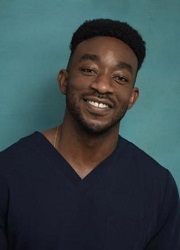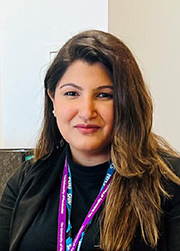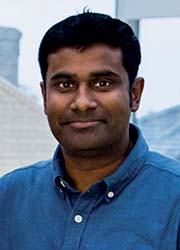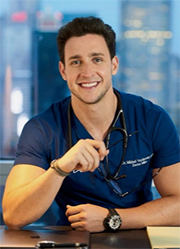
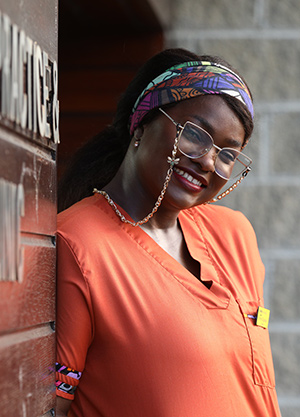
GP Lives: A privilege to be a GP
The conflict in Ukraine has had widespread ramifications for global trade, foreign policy and the world economy but the state of the Ukrainian health service, particularly primary care, very rarely makes the headlines
So how are GPs in Ukraine managing to provide vital care to those in need?
Dr Victoria Tkachenko has been a GP in Kyiv for the past 15 years. She began her career in 2003, working as a general physician in family medicine and an internal medicine specialist.
Her role also stems beyond her surgery and into academia, with a position as a professor in general practice and family medicine at the Shupyk National Healthcare University of Ukraine. Dr Tkachenko also gives prominent contributions to international discourse on general practice including the WONCA conference, hosted by the RCGP in London in 2022.

Prior to the outbreak of the war, Dr Tkachenko's practice, and the whole of Ukrainian primary care, was struggling with the problems facing many health services across the globe - reeling from the effects of the pandemic and far from a point of full recovery.
The invasion immediately intensified these problems ten-fold. Kyiv, as the main target for advancing Russian forces, was under attack from air strikes and bombings, leading many people - including healthcare professionals - to evacuate the city.
For those who remained, there was limited access to healthcare and treatment as the population were encouraged to take shelter from attack. Almost all pharmacies were closed and the ones which were open were empty as panic buying led to mass medicine shortages.
Dr Tkachenko reflects on how the role of the GP changed in a matter of days.
"Our patient appointments went from the consultation room to the air-raid shelter overnight as Russian air attacks hit our city. The disruption was widespread and meant that many patients lost contact with all branches of healthcare.
"As GPs we had to step up. We went from being the trusted family doctor to the universal medical field worker, providing emergency treatment for a new array of conditions and problems."
As the conflict progressed and the Russian advance into Ukraine stalled, the disruption of healthcare was lessened. Incoming humanitarian aid and international support helped to return the supply of vital medicines.
However, there were still fundamental challenges and disruptions to providing care for Dr Tkachenko and her team.
The effect on the health of the population from ongoing conflict was, and continues to be, substantial. Many people, including those with serious health conditions, have been routinely forced to take refuge in damp cellars, sometimes for days at a time, to wait out Russian air strikes. During the winter months this can be particularly dangerous.
As people struggled to access fresh food, regular exercise and were subject to the physical, emotional and psychological stresses of conflict, Dr Tkachenko saw further deterioration in patient health.
"The nature of the conditions patients presented with started to change. Those suffering from chronic conditions saw their health worsen as they were unable to provide the self-care they needed.
“We saw a higher volume of patients presenting with respiratory and urinary infections, cases of frostbite, severe lacerations, gunshot wounds and many people presenting with post-traumatic stress disorder."
The primary focus of Ukraine's national spending is being directed towards the war effort. While humanitarian aid and funding from overseas is helping to support general practice, the necessary funds to maintain a high functioning primary care system has been significantly hampered.
The state 'Affordable Medicines' program allows GPs to prescribe some groups of vital medicines free of charge to those most in need - patients who may have been displaced or are of retired age or financially poorer benefit from this program.
Despite the tremendous adversities facing Ukrainian primary care, Dr Tkachenko and her team are maintaining their optimism while providing for those in need.
"Shared art therapy sessions in the evenings, run by a colleague of mine who is a skilled oil painter, have been a great way for us to reduce stress. It's been helpful to find an activity that helps to relieve the daily pressures we're facing and bring us closer together as a team.
"Psychological self-care and maintaining morale have been vital for all Ukrainians. The first lady, Olena Zelenska, has been leading an organised program of mental support with different enriching activities promoted across tv and internet platforms."
Although the conditions have been tough, Dr Tkachenko feels that the end is in sight and that the situation will improve for Ukrainian primary care.
"We're extraordinarily grateful for the support we've received so far from our international colleagues in primary care.
"We've seen unified support for the Ukrainian people, and we look forward to continuing the many international cooperative projects which are helping to maintain primary care. We just need to carry on and ensure that we support our patients and, of course, each other."
Read more
Thank you for your feedback. Your response will help improve this page.
